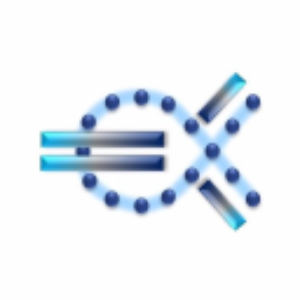Actinium Expands Patent Coverage Over Iomab-ACT, its Next-Generation Targeted Radiotherapy Conditioning Agent, for Gene Edited Stem Cell-Based Therapies for Non-Malignant Indications
Rhea-AI Summary
Actinium Pharmaceuticals (NYSE AMERICAN: ATNM) has expanded its patent coverage for Iomab-ACT, a targeted radiotherapy conditioning agent, with the issuance of U.S. Patent No. 11,912,780. This patent, extending to 2040, covers methods using Iomab-ACT for conditioning patients before gene-edited hematopoietic stem cell therapy for non-malignant disorders such as sickle cell disease, SCID, β-thalassemia, and Fanconi's anemia.
Iomab-ACT targets CD45, aiming to replace non-targeted chemotherapy in conditioning for cell and gene therapies. The company is conducting clinical trials with Memorial Sloan Kettering Cancer Center, the University of Texas Southwestern, and Columbia University to explore Iomab-ACT's potential in various applications, including CAR-T therapy and sickle cell disease treatment.
Positive
- Expanded patent coverage for Iomab-ACT until 2040
- Potential application in treating multiple non-malignant disorders
- Ongoing clinical trials with prestigious institutions
- Initial proof of concept data showed promising results with minimal toxicities
Negative
- None.
News Market Reaction 1 Alert
On the day this news was published, ATNM declined 4.34%, reflecting a moderate negative market reaction.
Data tracked by StockTitan Argus on the day of publication.
- Newly issued
- Pertains to the use of Iomab-ACT with genetically engineered hematopoietic stem cells for treating non-malignant diseases including sickle cell disease, severe combined immunodeficiency disease, β-thalassemia and Fanconi's anemia
Sandesh Seth, Actinium's Chairman and CEO, stated, "The field of gene-edited stem cell therapies is rapidly evolving, with the potential to transform or even cure debilitating diseases. Recognizing this emerging field, we are excited to further strengthen our intellectual property portfolio, demonstrating our commitment to innovation in targeted radiotherapy. We aim to establish Iomab-ACT as a universal, non-chemotherapy targeted conditioning regimen for use across cell and gene therapies for both malignant and non-malignant indications. Current conditioning regimens use high doses of cytotoxic chemotherapies such as busulfan and others that are associated with infertility and other toxicities posing barriers for patients seeking gene therapy for non-cancerous diseases. Collectively, the indications covered under this patent afflict over one hundred thousand patients each year, and we are committed to improving access and outcomes for these patients via Iomab-ACT as is evidenced by our recent clinical collaborations with leading academic institutions to determine the potential of Iomab-ACT as a conditioning regimen prior to a cellular therapy".
Actinium's intellectual property portfolio also includes a family of issued composition of matter patents covering Iomab-B and Iomab-ACT, extending into 2037. The term of newly issued
Iomab-ACT is currently being studied in a clinical trial at Memorial Sloan Kettering Cancer Center with a CD19 CAR-T therapy in patients with relapsed or refractory B-cell Acute Lymphoblastic Leukemia (r/r B-ALL) or Diffuse Large B-cell Lymphoma (DLBCL) that is supported by grant funding from the National Institutes of Health (NIH). Initial proof of concept data showed that Iomab-ACT produced transient depletion of peripheral blood lymphocytes and monocytes and that CAR-T cells persisted up to eight weeks post infusion. Minimal non-hematologic toxicities have been observed to date. Specifically, there were no (0/4) cases of immune effector cell-associated neurotoxicity syndrome (ICANS) of any grade, a major safety measure of the study, as ICANS is observed in
About Actinium Pharmaceuticals, Inc.
Actinium develops targeted radiotherapies to meaningfully improve survival for people who have failed existing oncology therapies. Advanced pipeline candidates Iomab-B (pre-BLA & MAA (EU)), an induction and conditioning agent prior to bone marrow transplant, and Actimab-A (Cooperative Research and Development Agreement (CRADA) with the National Cancer Institute), a therapeutic agent, have demonstrated potential to extend survival outcomes for people with relapsed and refractory acute myeloid leukemia. Actinium plans to advance Iomab-B for other blood cancers and next generation conditioning candidate Iomab-ACT to improve cell and gene therapy outcomes. Actinium holds more than 230 patents and patent applications including several patents related to the manufacture of the isotope Ac-225 in a cyclotron.
For more information, please visit: https://www.actiniumpharma.com/
Forward-Looking Statements
This press release may contain projections or other "forward-looking statements" within the meaning of the "safe-harbor" provisions of the private securities litigation reform act of 1995 regarding future events or the future financial performance of the Company which the Company undertakes no obligation to update. These statements are based on management's current expectations and are subject to risks and uncertainties that may cause actual results to differ materially from the anticipated or estimated future results, including the risks and uncertainties associated with preliminary study results varying from final results, estimates of potential markets for drugs under development, clinical trials, actions by the FDA and other governmental agencies, regulatory clearances, responses to regulatory matters, the market demand for and acceptance of Actinium's products and services, performance of clinical research organizations and other risks detailed from time to time in Actinium's filings with the Securities and Exchange Commission (the "SEC"), including without limitation its most recent annual report on form 10-K, subsequent quarterly reports on Forms 10-Q and Forms 8-K, each as amended and supplemented from time to time.
Investors:
investorrelations@actiniumpharma.com
![]() View original content to download multimedia:https://www.prnewswire.com/news-releases/actinium-expands-patent-coverage-over-iomab-act-its-next-generation-targeted-radiotherapy-conditioning-agent-for-gene-edited-stem-cell-based-therapies-for-non-malignant-indications-302211825.html
View original content to download multimedia:https://www.prnewswire.com/news-releases/actinium-expands-patent-coverage-over-iomab-act-its-next-generation-targeted-radiotherapy-conditioning-agent-for-gene-edited-stem-cell-based-therapies-for-non-malignant-indications-302211825.html
SOURCE Actinium Pharmaceuticals, Inc.








